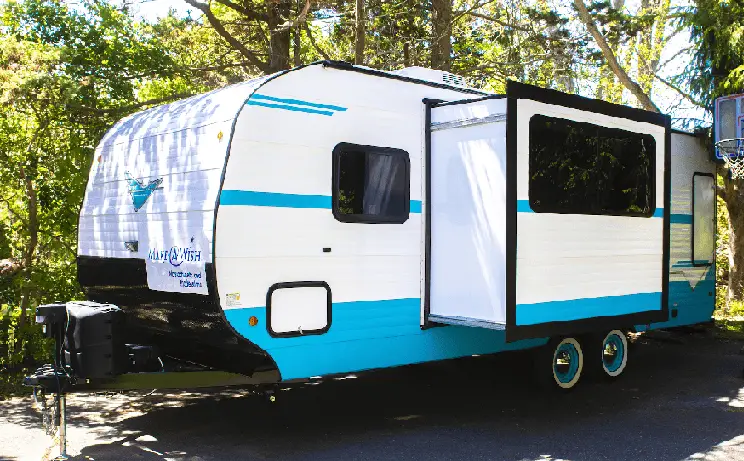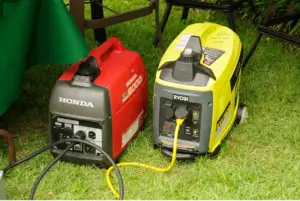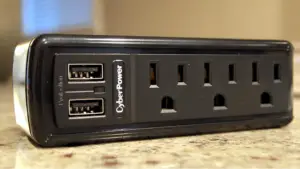RVing is a fun and adventurous life. Such exciting adventures attract more and more people to purchase RVs. With an RV, you can enjoy life on the road exploring new states and viewing magnificent sites. However, RVing is not always a smooth ride.
If you’re a newbie to owning an RV, you will want to avoid common mistakes. Thus, it is beneficial for you to learn most of the tips and tricks to make RVing as enjoyable as possible.
So, whether you plan to buy or rent an RV, here are common mistakes you’ll want to avoid.
1. Inadequate research
Before buying an RV, you should research well on the RV. With so many manufacturers, there are so many RV models. So, to find the right one, you need to understand what you require from the RV.
Never buy the first RV you look at. You may be unaware that RVs have different floor plans and customization options. Impulsive buying can cause you massive financial loss when the trailer doesn’t meet your plans.
Take time, ask the dealer all the right questions, and take a comprehensive walk-through.
Most new RV owners regret being less informed during their purchase. Consider your and your family’s lifestyle and the places you want to camp. Make sure the RV fits this lifestyle. For instance, you may desire to dry camp, but it becomes impossible due to your RV’s limited holding tanks.
You can check instructional videos if you feel overwhelmed in making the correct decision. Also, educational trailer buying blogs can be a great way to learn about RVs.
2. Rushing through delivery
Once you purchase an RV, don’t rush through delivery. When you pick your fifth wheel from the dealer, crucially take time and get a detailed walk-around of your vehicle.
Have the dealer provide a comprehensive overview of its features and systems.
Ensure everything checkout before you take ownership and drive off with the RV. Ask questions and take key notes and learn everything about the trailer.
3. Driving the RV without much practice
As a new RV owner, you may lack the expertise and experience to drive it. Take it slow and learn how to maneuver, back up carefully, and turn. Even if you have experience owning an RV, each vehicle drives and handles differently. Take advantage of any courses offered by the RV dealer.
Unlike a car, an RV handles differently. The two are designed differently and thus have varied weights, centers of gravity, turning radiuses, braking distances, and much more.
As such, you need the practice to avoid accidents and future RV mistakes. Especially for large Class A RV, practice driving it as much as possible before leaving the lot.
A good practice is to read about RVing well before purchasing it. Check out educational material and lessons and join online RV platforms to improve your trailer knowledge.
4. Not having everything you need in the trailer
An RV is a second home. It requires more gadgets and equipment for a comfortable stay. Practice having a well-crafted checklist to ensure you have everything you need. Android and iOS applications provide customizable checklists.
Here is a list of essential things:
- RV registration and Insurance paperwork
- RV owner’s manual
- Portable generator
- Jumper cables
- Wheel blocks
- Levelers
- Tire pressure gauge
- Tool kit
- Flashlight
- First aid kit
- Sleeping bags
- Camping chairs and table
- Insect repellent
- Sunblock
- Portable phone charger
- Hiking gear
However, it would help if you minimized what you’re packing. You don’t need to carry excessive luggage, kitchen utensils, or camping equipment.
Learn to minimize and become resourceful when RVing. Having fewer clatters means you have less time packing and unpacking and less RV weight, thus saving on fuel, and you learn to survive on limited resources.
5. Skipping a practice run
As a first-time RV owner, before going out full-time on the first run, it is best if you have a practice run RVing. Don’t rush to go on the road before you have a trial run close to home.
Although you may have the adrenaline and desire to learn on the go, most often, the experience won’t be as memorable and enjoyable. Since you lack RVing experience, you’ll be prone to make silly and avoidable mistakes.
A camping trip close to home can be the ideal experience to understand the RVing lifestyle. In your practice run, you’ll understand, for instance, why you needed a checklist to avoid forgetting that insect repellant.
Practice runs will also help calm your anxiety, ease your nerves and provide much-needed confidence for long-term RVing.
You’ll always make mistakes as a first-time RV owner. So practice runs are essential to learning what you like and dislike in camping trips.
6. Not planning routes adequately
Before you embark on an RV road trip, plan RV-friendly routes in advance. Think about gas stations, roads with propane restrictions, low clearance crossings, and any steep roads that may be challenging to navigate.
Most campers desire to see magnificent sites, usually driving through backroads. You don’t want to get stuck on narrow roads or small tunnels.
Spending adequate time planning routes will ensure you don’t spend hours and gas finding alternative routes. Special RV GPS devices allow you to input your RV’s dimensions to ensure the route can be navigated.
A common mistake when planning routes is an overreliance on Google maps. When we become accustomed to using our phones for directions, we may fail to double-check whether the route is RV-friendly. You just put in the address and follow Siri’s directions.
However, if you are not careful, you may come across a road with weight limits, halting your progress.
Many times, the consequence of blindly trusting Google and Siri is finding yourself on dangerous routes and being forced to find alternative routes.
Route planning is critical.
Apart from RV-specific GPS, you can use phone apps that indicate routes with weight restrictions and low clearances. Have a habit of checking routes ahead of time.
7. Failing to check the weather
We cannot control the weather, making it the most unpredictable part of RVing. So if you’re planning a trip, never make the dire mistake of not checking adverse weather conditions.
You don’t want tornado, hail, fog, or strong winds surprises.
The right of weather planning is using correct RV weather apps that provide crucial information on safe routes and times to avoid dangerous weather.
Check the weather on your desired route as well as your destination. Although not consistently accurate, weather forecasting helps plan a trip.
The best weather apps include Radarscope, AccuWeather, and Storm Shield.
Certain apps like My Pollen Forecast will help you avoid areas with allergens where you’re likely to suffer allergic reactions. The app provides data on locations with pollen and mold. Crucially, be mindful of the weather when planning an RV trip.
8. Overloading the RV
Most times, RV owners disregard or are unaware of their RVs’ weight limits. Overloading is a dangerous and costly mistake you should avoid.
Every trailer has a designated gross vehicle weight rating (GVWR). This is the maximum your RV should weigh.
When loading items, equipment, and people, it is easy to forget and exceed the weight limit.
Even experienced RV drivers can make this crucial mistake. It’s an essential skill to have a clear picture and know when you overload your trailer. Most truck stops have measuring scales you can use to know the weight of your RV.
9. Disregarding the RV’s dimensions and ground clearance
As discussed earlier, your trailer dimensions are crucial when planning the best routes for the RV. Memorizing these dimensions can prove crucial when you come across low crossings, narrow tunnels, and drive-throughs with canopies.
Knowing this will avoid you from getting stuck in hazardous situations.
Further, understanding your trailer’s ground clearance is important to avoid damaging the bottom side of the RV. You can easily get stuck on a rock, ditch, or raised section of a road when you have low ground clearance. You don’t want to damage or rip off the trailer’s bumper.
10. Neglecting RV maintenance
Crucially, as an RV owner, always check tire pressure and wear and perform regular upkeep and maintenance. Ignoring maintenance will surely cost you in the long run and ruin vacations. Although not exciting, some of the things you should always check are:
Tire pressure and wear – You want to avoid a tire blowout, so through regular inspections, you can notice tire wear signs and replace the worn-out tire. Also, routinely check air pressure.
Lead Acid batteries – Always ensure your RV battery is correctly topped up with fluids. Perform battery checks and replace when it is damaged.
Oil and filters – Like most modern vehicles, an RV would require checking and changing its oils and filters. The manual provides the correct intervals to change the different oils in the RV. Apart from oil filters, the RV has coolant, air, and fuel filters that need to be routinely inspected.
Bearings and brakes – Routinely check the RV’s brakes and bearings. A mechanic checkup can help avoid unforeseen repairs.
The trailer has many other systems, including the sealant, water, and propane systems. Regular RV maintenance will save you costly repairs in the future.
11. Failing to book campsites and planning RV parking
The best campsites require booking, especially during peak seasons. If you’re planning to hit the road, make an advanced booking to get the campsites with the best amenities.
Read online reviews and check if it’s the right fit for you.
Without advanced booking, you risk getting subpar campsites. You may desire a sparking clean bathroom, hot tubs, swimming pool, or large camping ground.
An online search or an inquiry call will help you know what amenities are offered at specific campsites. Always check cancellation policies to be prepared if your plans change.
However, don’t spend too much time looking for the perfect campground. Each campsite has its good and bad, so find one that meets most of your needs. Camping is not about the ground but the memories you make while there.
Also, when planning a road trip, make a habit of calling ahead to ask for details of RV parking. You don’t want the shock of finding fully packed RV stops or those that fail to meet your expectations.
12. Going Too Far and Too Fast
New RV Road trippers make the mistake of focusing on the destination and time. They expect to arrive at their location as if they were driving a car.
However, RVing is about enjoying your time on the road. It’s not just about the destination.
Driving an RV requires more focus; hence you can get exhausted after a relatively short drive. Have reasonable expectations of the pace when planning a vacation.
As a rule of thumb, follow the 3/300 rule. Drive less than 300 miles daily and arrive at your destination before 3 pm.
Avoid driving above 50miles per hour as it could be dangerous. A faster drive can result in accidents caused by trailer sway. Drive slowly and carefully. Allow yourself to enjoy the journey.
13. Failing to secure your stuff
As you drive your RV, you risk losing any poorly secured items. Every time you hit the road, ensure all your belongings are secure. Make a complete walk around your RV inside and out and check all your belongings.
A checklist can be helpful to ensure everything is in good order before you start your journey. You don’t want shattered windows, propane leaks, and broken utensils or doors. Further, disconnect any water and sewer hoses and electrical plugs.
Ensure all accessories are in place before driving off. A common mistake is failing to put the trailer’s steps back in and securing them. Also, make sure to lower your antennae. You don’t want it damaged by tree branches.
14. Backing up without a spotter.
Backing up without help can be a costly mistake. It is easy to back up into a tree, ditch, or hit another RV with limited visibility. One best practice is to have a spotter. Most campsites offer escorts to guide you as you reserve the trailer.
Establish hand signals or use a phone or walkie-talkie to communicate with the spotter effectively. Reverse slowly and carefully, always ensuring the spotter is in a clear view.
The spotter should be keen on rocks, people, low branches, and anything that can damage the RV. Another good practice is using a backup camera.
Bottom Line
This post provides you with practical tips to avoid unnecessary RV mistakes. The more you learn to avoid these mistakes, the less costly and safer your RV experience will be.
Adequately plan your RV adventure to ensure an enjoyable and relaxing RVing time. Sufficiently research before buying a trailer, purchase an RV-specific GPS, and schedule some training before your first trip.





